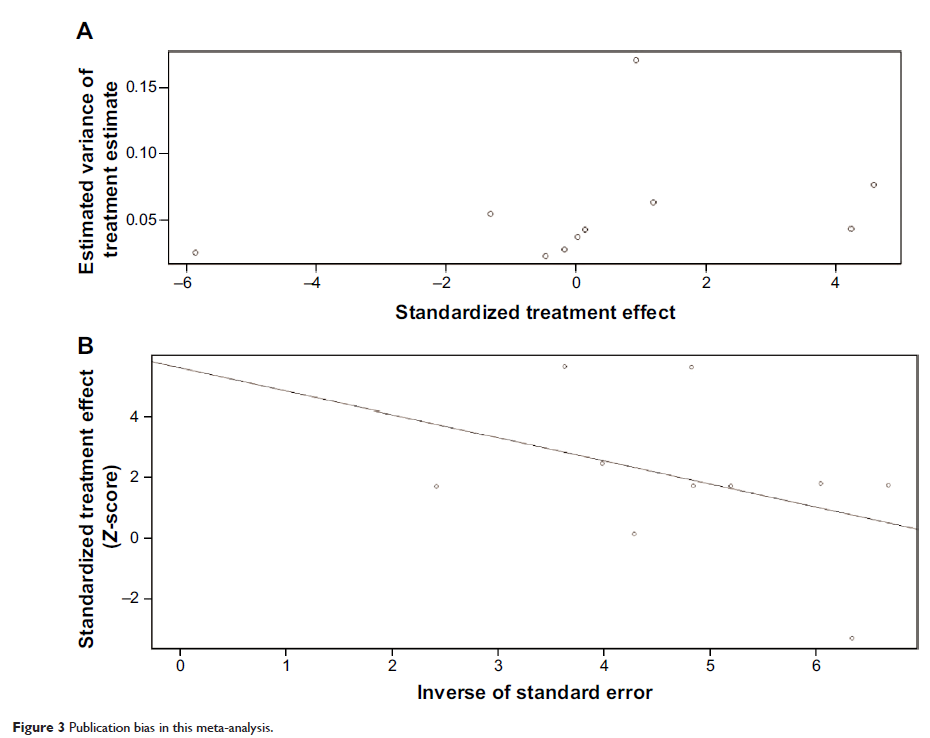9 0 5 7 8
论文已发表
注册即可获取德孚的最新动态
IF 收录期刊
- 2.6 Breast Cancer (Dove Med Press)
- 3.9 Clin Epidemiol
- 3.3 Cancer Manag Res
- 3.9 Infect Drug Resist
- 3.6 Clin Interv Aging
- 4.8 Drug Des Dev Ther
- 2.8 Int J Chronic Obstr
- 8.0 Int J Nanomed
- 2.3 Int J Women's Health
- 3.2 Neuropsych Dis Treat
- 4.0 OncoTargets Ther
- 2.2 Patient Prefer Adher
- 2.8 Ther Clin Risk Manag
- 2.7 J Pain Res
- 3.3 Diabet Metab Synd Ob
- 4.3 Psychol Res Behav Ma
- 3.4 Nat Sci Sleep
- 1.9 Pharmgenomics Pers Med
- 3.5 Risk Manag Healthc Policy
- 4.5 J Inflamm Res
- 2.3 Int J Gen Med
- 4.1 J Hepatocell Carcinoma
- 3.2 J Asthma Allergy
- 2.3 Clin Cosmet Investig Dermatol
- 3.3 J Multidiscip Healthc

已发表论文
移动抑制因子-173G/C 多态性与癌症风险之间的关联: 一项综合分析
Authors Zhang X, Weng WH, Xu W, Wang YL, Yu WJ, Tang X, Ma LF, Pan QH, Wang JY, Sun FY
Published Date March 2015 Volume 2015:8 Pages 601—613
DOI http://dx.doi.org/10.2147/OTT.S72795
Received 17 August 2014, Accepted 14 January 2015, Published 10 March 2015
Approved for publication by Dr Faris Farassati
Abstract: Previous studies have suggested that macrophage migration inhibitory factor (MIF) -173G/C polymorphism may be associated with cancer risk. However, previous research has demonstrated conflicting results. Therefore, we followed the preferred reporting items for systematic reviews and meta-analyses (PRISMA) guidelines and the meta-analysis on genetic association studies checklist, and performed a meta-analysis to investigate the association between MIF -173G/C polymorphisms and the risk of cancer. Odds ratios (ORs) and corresponding 95% confidence intervals (CIs) were combined to measure the association between MIF promoter polymorphisms and cancer risk. The pooled ORs were performed for the dominant model, recessive model, allelic model, homozygote comparison, and heterozygote comparison. The publication bias was examined by Begg’s funnel plots and Egger’s test. A total of ten studies enrolling 2,203 cases and 2,805 controls met the inclusion criteria. MIF (-173G/C) polymorphism was significantly associated with increased cancer risk under the dominant model (OR=1.32, 95%, CI=1.00–1.74, P =0.01) and the heterozygote comparison (OR=1.38, CI=1.01–1.87, P =0.04). In subgroup analysis, MIF polymorphism and prostate were related to increased risk of prostate and non-solid cancer. In conclusion, MIF polymorphism was significantly associated with cancer risk in heterozygote comparison. The MIF -173G/C polymorphism may be associated with increased cancer risk.
Keywords: MIF, SNP, systematic review, cancer susceptibility
Keywords: MIF, SNP, systematic review, cancer susceptibility
